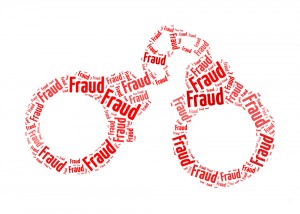 The experienced securities fraud lawyers of Gana Weinstein LLP are investigating multiple customer disputes filed with the Financial Industry Regulatory Authority (FINRA) against broker Andrew Bruce Elsoffer (Elsoffer). According to Elsoffer’s FINRA BrokerCheck records, there are several disclosures on his record pertaining to securities fraud, misrepresentation, unsuitability, breach of fiduciary duty, and negligence amongst other allegations.
The experienced securities fraud lawyers of Gana Weinstein LLP are investigating multiple customer disputes filed with the Financial Industry Regulatory Authority (FINRA) against broker Andrew Bruce Elsoffer (Elsoffer). According to Elsoffer’s FINRA BrokerCheck records, there are several disclosures on his record pertaining to securities fraud, misrepresentation, unsuitability, breach of fiduciary duty, and negligence amongst other allegations.
Elsoffer entered the securities industry in 1994 and was only registered with Merrill Lynch, Pierce, Fenner & Smith, Inc. until November 2011. He is currently employed at Stifel Nicolaus & Co., Inc. since November 2011. He was previously employed at:
• Bank of America (December 2009 – October 2011)
• Merrill Lynch, Pierce, Fenner & Smith, Inc. (December 1994 – October 2011)
A customer dispute was settled in March 2016, which alleged Elsoffer of securities fraud; common law fraud and misrepresentation; unsuitability; breach of fiduciary duty; elder abuse and exploitation; breach of contract; gross negligence; and negligence. The client claimed that these misconducts occurred during the time Elsoffer was employed at Stifel, Nicolaus & Company. The original damages amount was $2,250,000.00 and settled for 165,000.00.
Another customer complaint was filed for the period Elsoffer was working at Merrill Lync, Pierce, Fenner & Smith, Inc. The claim alleged that Elsoffer made unsuitable investment recommendations. The dispute settled for $75,000.00 out of the original damages amount of $446,000.00.
Elsoffer was discharged by Merrill Lynch, Pierce, Fenner & Smith, Inc. in October 2011 based on allegations that he failed to follow management directives and violated company policies, including practicing time and price discretions in client accounts and mismarking order tickets.
The term “securities fraud” covers a range of illegal activities involving the deception of investors or the manipulation of the financial markets. Fraud includes false representations, unauthorized trading, value manipulation, and Ponzi schemes. Investors are protected against fraudulent securities activities by several different civil laws.
First, the Securities Exchange Act of 1934 (15 U.S.C. § 78a et seq.) and Rule 10b-5 protect investors against deceptive and manipulative acts in the purchase or sale of securities. This sweeping legislation is the cornerstone of federal securities laws. Rule 10b-5 makes it unlawful to employ a device or scheme to defraud, to make any untrue statement of material fact or omit to state a material fact not misleading, or to engage in any practice that would operate as a fraud.
Second, the vast majority of states have passed “blue sky” laws that regulate the securities industry in each state and protect investors. Even if a state has not enacted specific securities laws, an investor can still pursue a claim under theories of common law fraud.
Third, investors can pursue claims against a broker or a brokerage firm under the rules of the Financial Industry Regulatory Authority (FINRA), including its anti-fraud provisions. The FINRA rules have several provisions pertaining to fraud including IM-2310-2 (covering churning, false accounts, unauthorized trading, and misuse of customer funds) and Rule 2210 (covering communications with the public).
The dedicated attorneys at Gana Weinstein LLP represent investors who have suffered losses due to securities fraud. The majority of these claims may be brought in securities arbitration before FINRA. Our consultations are free of charge and the firm is only compensated if you recover.
 Securities Lawyers Blog
Securities Lawyers Blog


